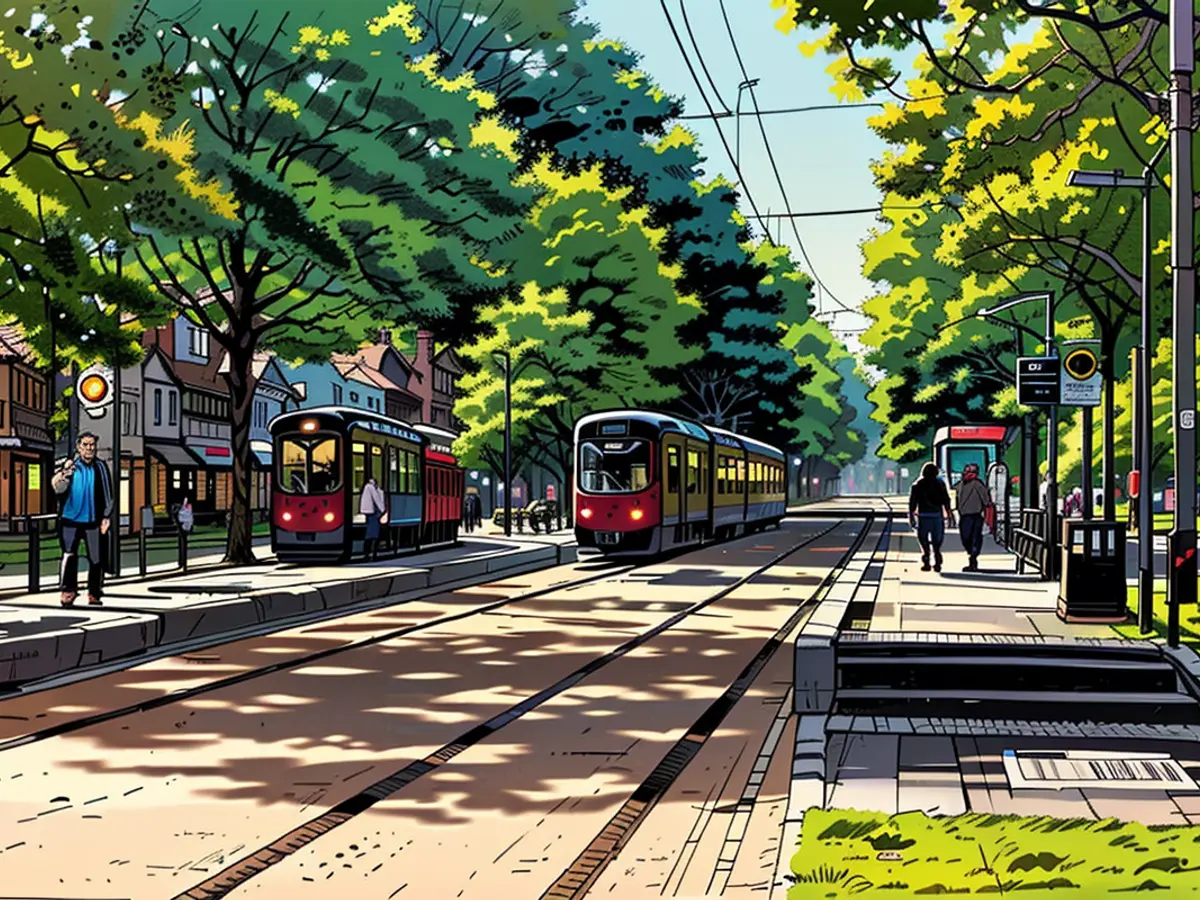Vehicular Movement - Erlangen to decide on city-county railway plan.
This coming Sunday (at 8:00 am), the people of Erlangen will not only be voting for the European election, but they'll also be deciding the fate of public transportation in the Nuremberg metropolitan area. Their decision could potentially stop one of Germany's biggest tram projects.
Approximately 83,000 eligible voters will be able to vote on whether or not to implement the planned city-suburban railway. The existing tram in Nuremberg is planned to be extended to Erlangen and further to Herzogenaurach. Estimated costs for this project are around 640 million euros, with 90% of the funding coming from the federal and state governments.
A wide range of stakeholders are supporting the project, including the Friedrich-Alexander-University of Erlangen-Nuremberg and the global corporation Siemens. Additionally, Markus Söder, the Minister President, and Joachim Herrmann, the Interior Minister, both from the CSU, are fully in support.
However, the Erlangen branch of the CSU is working hard to prevent the implementation of the Three-City Tram and is advocating for its rejection. Their reasons: too many disruptions in Erlangen and high costs.
In 2016, around 60% of Erlangen residents expressed approval for the planning process. The final outcome of the citizen's vote is unclear, according to observers.
Read also:
- The upcoming Sunday's elections in Germany extend beyond the European elections, as the people of Bavaria's Erlangen also vote on a municipal plan for a city-county railway, which could halt a major tram project.
- The European elections in Bavaria, specifically in Erlangen, will determine whether or not to proceed with the planned city-suburban railway extension to Erlangen and Herzogenaurach, a project estimated to cost 640 million euros.
- The future of traffic in Nuremberg's metropolitan area is at stake during the European elections in Germany, as 83,000 eligible voters in Erlangen cast their ballots to decide the fate of this ambitious tram project.
- CSU politicians, like Markus Söder, the Minister President, and Joachim Herrmann, the Interior Minister, are backing the proposed Three-City Tram, but the Erlangen branch of the CSU is advocating against it due to potential disruptions and high costs.
- The European elections in Central France might not have a direct impact on Bavaria's municipalities, but the outcome of the Erlangen vote could significantly impact future transportation plans in Germany and Europe, particularly for cities like Nuremberg and Erlangen.
- Meanwhile, in a different part of Europe, French voters are gearing up for their own municipal elections, observers anticipate that the European elections in Germany could influence similar infrastructure projects, benefiting from the lessons learned from Erlangen's ballot.








